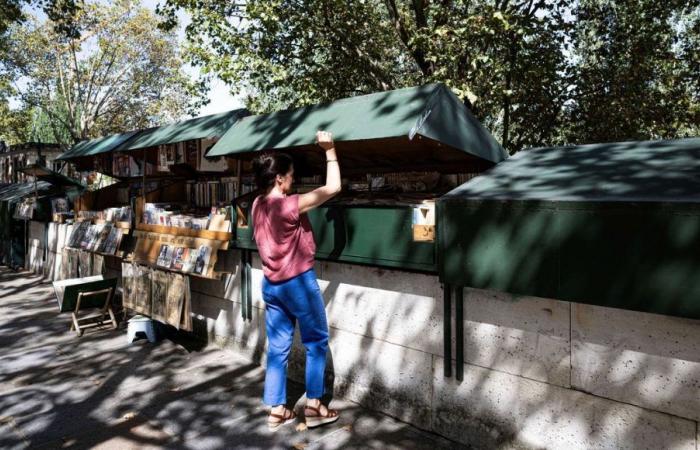
Between the Pont Marie and the Pont de Sully, along the banks of the Seine, Paris is the only city in the world to offer a gigantic open-air bookstore, which stretches over 3 kilometers and offers 300,000 books. This year, 17 concessions are to be filled out of the 240 that exist.
What to dream of? The candidates did not really seem to be jostling for each other at the end of last week but Paris City Hall remained confident in allocating all the famous little vacant green boxes. Twenty years ago, the number of suitors was such that it was necessary to maneuver to obtain a location. This is no longer the case today.
Paris and its second-hand booksellers, an ancient history
The first booksellers were recorded more than 450 years ago. On numerous occasions, the public authorities have tried to dislodge them. Without succeeding. Very recently, during the Olympic Games, they almost disappeared in the name of securing the banks imposed by the Paris Prefecture for the Opening Ceremony.
Paris City Hall did not object, causing an outcry. And if the boxes were not dismantled, it is only because Emmanuel Macron finally got involved. Because the Presidents of the Republic and second-hand booksellers are an old story. François Mitterrand was already doing his shopping on the quays every week.
Book sellers once again avoided the worst but the summer turned out to be very unprofitable. Everyone regretted that the tourists, very busy with sporting events, did not take the time to stroll around. Traffic zones have paralyzed Parisians. And above all the weather, essential in this type of business, did not contribute to improving business. It just rained too much.
Strict regulations
Bookseller is an extremely regulated profession. A selection committee allocates the locations and authorizations are issued by Paris City Hall for a period of five years. Unless it’s raining heavily or snowing, book sellers must commit to being present and opening at least four days a week. They do not pay rent to practice their profession.
Everything is codified. The size of the boxes is determined by Paris City Hall to the nearest centimeter: 2 meters in length, 75 centimeters in width and 60 centimeters in height on the Seine side. We’re not kidding with the color either, it’s wagon green RAL 60 05 or nothing. In the 1940s, dark gray was allowed, that’s the end of it, everything must match the street furniture.
But above all, second-hand booksellers must commit to selling second-hand books, old paper or old engravings. They can also sell new books but only from independent publishers. It is only incidentally that they can market small flea markets and souvenirs from Paris, such as postcards or key rings of the Eiffel Tower, and only in one of the four boxes allocated to them. A necessary gap which allows them to continue their profession as a bookseller.
An unprofitable economic activity
Most booksellers manage to earn a minimum wage but by working six days a week. Some locations seem more attractive than others. There are more customers on the Left Bank than on the Right Bank. Opposite Notre Dame, the locations remain the most coveted, due to the flow of tourists.
Very often, book sellers are retired. Jérôme Callais, the president of the cultural association of Paris second-hand booksellers, does not hide the fact that the average age is high. In fact, 40% are over 65 years old, as many are between 50 and 65 years old. This is often an old dream for those who have already paid off their house and raised their children. For Jérôme Callais “It’s a job of freedom, of exchanges, of sharing. In no case is it an activity that allows you to get rich.”.





